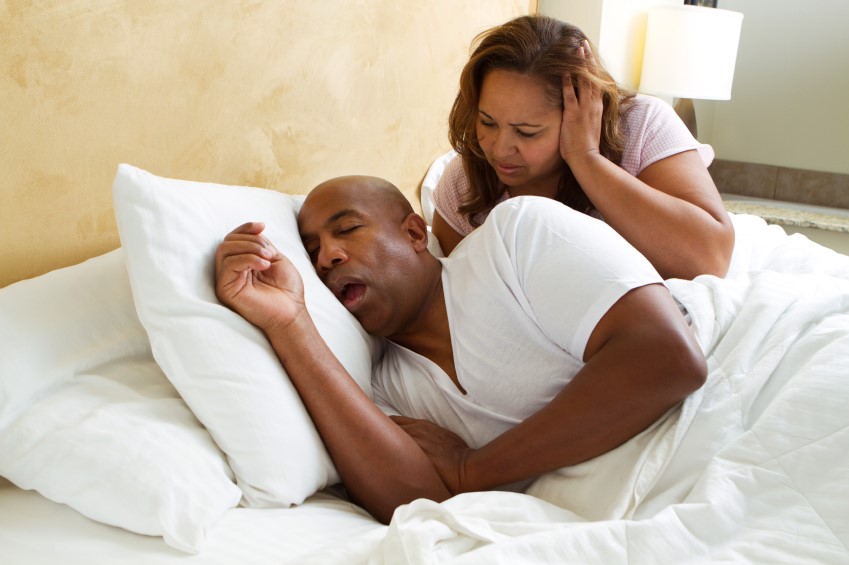How many of you, after being poked hard in the ribs, have been threatened with extinction for snoring? Admit it. You know it’s true. Your significant other knows it’s true, too. But what can you do about it?
The American Academy of Otolaryngology estimates that “45 percent of normal adults snore at least occasionally and 25 percent are habitual snorers.” Snoring in children may indicate problems with their tonsils and adenoids. However, for adults, the underlying causes may range from thickness of throat tissue to obstructions in the airways known as sleep apnea.
The Mayo Clinic advises that “Sleep apnea is a potentially serious sleep disorder in which breathing repeatedly stops and starts. You may have sleep apnea if you snore loudly, gasp for air and/or you feel tired even after a full night’s sleep.”
Also according to the Mayo Clinic, there are three main types of sleep apnea:
- Obstructive sleep apnea occurs when as you lie on your back, your soft palate and tongue move closer together, narrowing your air passage or closing it as you breathe in. This prevents you from catching an adequate breath and your breathing may stop for 10 seconds or more possibly causing a lower level of oxygen in your blood.
- Central sleep apnea occurs when your brain doesn’t send signals to the muscles that control breathing.
- Complex sleep apnea syndrome,also known as treatment-emergent central sleep apnea, occurs when someone has both obstructive sleep apnea and central sleep apnea.
Additional symptoms to watch out for include:
- restless sleep or insomnia
- difficulty concentrating
- waking up several times a night
- awakening with a dry mouth or sore throat
- irritability and mood changes
- decreased libido or erectile dysfunction
- large neck circumference (greater than 17 inches for men, greater than 15 inches for women)
At greatest risk are often men, older or obese adults, smokers and those who suffer with chronic nasal congestion.
Sleep apnea can have serious consequences, especially if the symptoms are left undiagnosed. Recently, there were two major train crashes in the Metropolitan area resulting in one fatality and over 200 injured. Initially, these incidents were attributed to train engineers falling asleep or blacking out during working hours. The immediate assumption was either “overwork” or “negligence.” The real culprit in each case was undiagnosed sleep apnea.
Aside from falling asleep at the wheel, other dangerous complications include: impaired cognition and memory troubles, insulin resistance, hypertension, heart attack, stroke and chronic fatigue.
Doctor Legato who frequently sees sleep apnea among her patients will often question them about their sleeping patterns, home environment and any other obvious symptoms. The next step is often a sleep study (nocturnal polysomnography) that is carried out at an overnight sleep clinic. A home test can also be prescribed; this is usually a machine with a breathing apparatus hooked up to a patient during sleep.
Sleep studies record brain waves, eye and leg movements, oxygen levels, airflow, and heart rhythm. A physician, who specializes in sleep disorders, then interprets the results. Corrective action can vary from weight loss and using oral appliances to thermal ablation of tissues to more complicated surgery.
So, if you’re feeling exhausted or groggy and tired of being poked in the ribs by your very unhappy spouse– consult your doctor to determine if you have sleep apnea and how best to treat it.
Strategic Communications Professional/Content Strategist/Marketing Communications Consultant





